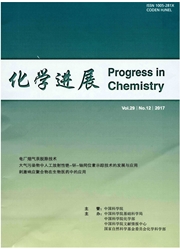

 中文摘要:
中文摘要:
石化能源危机与全球气候变化已成为人类的两大重要难题。生物柴油作为可替代普通柴油的环境友好且可再生的能源受到普遍关注。相比植物油和动物脂肪生产,藻类油脂产率高且容易培养,被认为是未来生物柴油发展的重要原料之一。通过转基因技术强化油脂代谢途径,提高富油微藻含油量,已经成为新的研究热点。已有植物研究表明,增强甘油酯酰基转移酶表达,可以提高Kennedy途径代谢中间体通量,从而增加甘油三酯(TAG)的积累。本文综述了微藻油脂代谢途径的国内外研究现状和提高油脂积累的代谢调控策略;详细阐述了基于植物油脂合成强化的成功经验,通过增强微藻Kennedy途径对提高TAG生物合成的重要作用;讨论了当前转基因微藻的遗传转化方法及其需要解决的关键性科学技术问题;分析了基因工程技术调控微藻脂类代谢途径生产高油脂的可能性,并对该研究的发展进行了展望。
 英文摘要:
英文摘要:
Fossil energy crisis and global climate change are two major challenges in the 21st century. Biodiesel, as an environmentally friendly and renewable alternative energy source to petroleum diesel, has drawn worldwide attention. Compared with vegetable oil and animal fats, algal lipid is considered to be one of future biodiesel feedstocks because of the microalgae characterized in its easy cultivation and high lipid content. The genetic engineering has now become a new research hotpoint to enhance the lipid metabolism pathway, thus to improve the lipid content of oil-rich mieroalgae. In this paper, the advances of lipid biosynthesis pathway in microalgae, and the metabolic regulation strategies for increasing lipid accumulation are reviewed. The importance of Kennedy pathway enhancement in the microalgal TAG biosynthesis is elaborated based on the fact that the enhanced glycerol acyltransferase expression in plants can increase the metabolism of Kennedy pathway intermediates flux, thereby increasing the triacylglycerols (TAG) accumulation. The current genetic transformation methods of microalgae and their key scientific and technical issues, as well as the possibility and prospects of genetic engineering metabolic pathways to regulate the mieroalgae lipid production are further discussed in detail.
 同期刊论文项目
同期刊论文项目
 同项目期刊论文
同项目期刊论文
 Screening of biocompatible organic solvents for enhancement of lipid milking from Nannochloropsis sp
Screening of biocompatible organic solvents for enhancement of lipid milking from Nannochloropsis sp A review of carbon dioxide capture and utilization by membrane integrated microalgal cultivation pro
A review of carbon dioxide capture and utilization by membrane integrated microalgal cultivation pro Improving docosahexaenoic acid productivity of Schizochytrium sp by a two-stage AEMR/shake mixed cul
Improving docosahexaenoic acid productivity of Schizochytrium sp by a two-stage AEMR/shake mixed cul 期刊信息
期刊信息
